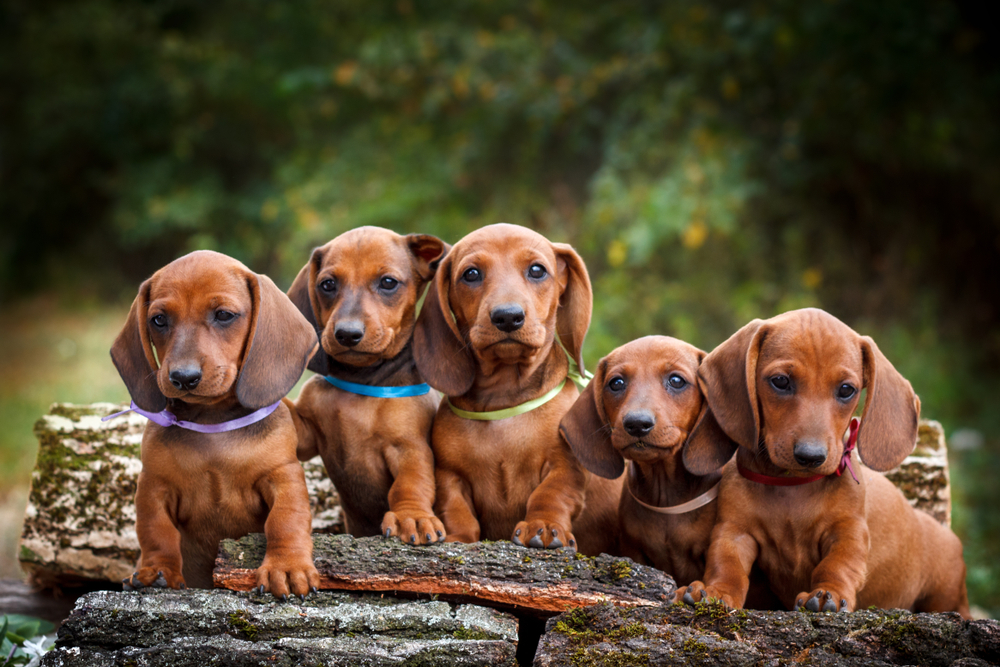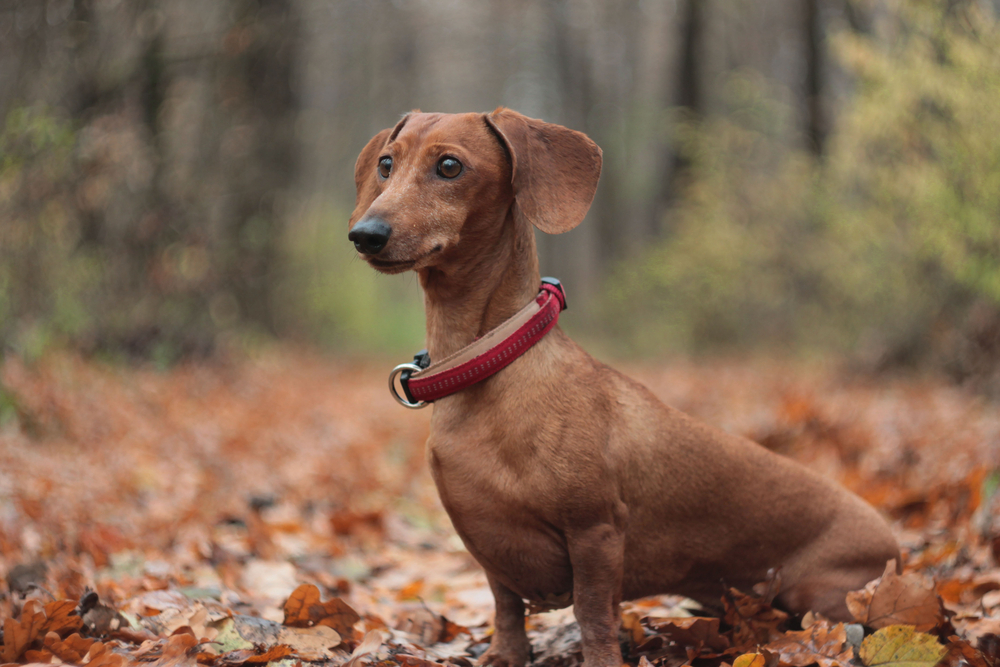Experts say that even basic training is good mental and physical exercise for our canine friends. Besides learning good manners, a well-trained dog is happier, healthier, and safer than one that isn’t. And no matter how much we love them, isn’t it nice to be around a well-behaved dog who doesn’t jump up to say hello?
Of course, obedience training takes time, effort, and lots of patience. Dogs who don’t learn the rules make up some of their own. And while they often know how to wiggle out of trouble with a snuggle or cute expression, it can be a struggle for them to live peacefully with others in the household.
Dog breeds like the poodle, German shepherd, and golden retriever are easy to train. Others, like the dachshund, take a little more patience. Here’s why reward-based training works better for your doxie, along with a few tips you can use to make the process more enjoyable.

About the dachshund
If you’ve ever heard the phrase “good things come in small packages,” you’ll understand why the dachshund is one of the most popular dog breeds in America. Their friendly, curious, and spunky nature is most likely why they ranked number 10 among American Kennel Club (AKC) registrations in 2020.
Originally bred as hunting dogs in Germany, the breed can be traced as far back as the 15th century. By 1885, dachshunds had made their way to the United States and were recognized as a breed by the AKC. As a German dog with a German name (dachs = badger and hund = dog), doxies were called badger dogs during World War II to preserve their growing appeal among dog lovers in the United States.
As hunting dogs, generations of dachshunds were trained to relentlessly follow the scent of badgers and other tunneling animals, as well as foxes and rabbits — and then fearlessly dig them out of their burrows. Some accounts even have them tracking wild boar! As a result, dachshunds are intelligent, energetic, playful dogs with a stubborn, independent streak. Despite their tendencies toward willfulness and mischief, they remain one of the most popular breeds in America today.

Why reward-based training works
But just because dachshunds are harder to train than other breeds doesn’t mean they shouldn’t be trained at all. If you become a doxie owner at the puppy stage, start obedience training as soon as possible. If you adopt a dog that’s a bit older, the same recommendation holds true. The sooner you can teach your dachshund the rules of the house (and that you are the boss!), the happier everyone will be.
Reward training works best for this breed, especially if it’s conducted by the human they love the best. Your loyal dachshund has a loving personality and enjoys showing off at every opportunity. Using positive rewards — petting, praising, and treats — during training teaches him what kind of attention he can expect when he is obedient.
Likewise, punishment, such as yelling or inflicting pain, can make him fearful as well as belligerent. Ironically, the best way to discipline a doxie is by ignoring him. He is so determined to be the center of attention that he will quickly abandon his bad behavior to find the praise and attention he adores.
Here are a few training tips to help you achieve success:
- Take them on a walk before the training session. Doxies have lots of energy, so it’s best to burn a little off before you begin training.
- Use one-word verbal commands whenever possible to help your dachshund learn faster, such as “no,” “sit,” “stay,” “down,” and “come.”
- Keep the training sessions to 10 minutes or less. Dachshunds are easily distracted, so plan to have several short training sessions during the day to maximize the effectiveness (and keep your sanity).
- Your food-motivated dachshund will love healthy rewards like small pieces of chicken, carrots, or store-bought training treats. Since you’ll probably need lots of these, keep them small and as healthy as possible. Use cheese sparingly, as it’s high in calories and may upset a lactose-intolerant pup.
- Praise and playtime are great rewards for those doxies that aren’t particularly motivated by treats.
- Be patient and positive. Dachshunds are naturally playful and energetic. They are also stubborn and ornery. Begin each training session with a positive mindset and stop the training when your pup loses interest or starts acting up.
Above all, have fun
Dachshunds have a reputation for being a lighthearted, dynamic breed. They are intelligent comedians who almost demand your attention. For that reason, the more fun you can infuse into the training process, the more they will enjoy spending time learning new things from you.
Will your dachshund always challenge you? Probably. But a human who can figure out what motivates his doxie will reap the rewards of a happy, healthy, well-trained pet who is loyal for years to come. The bond you develop as you spend quality time together will always outweigh putting up with a mischievous antic or two along the way.


